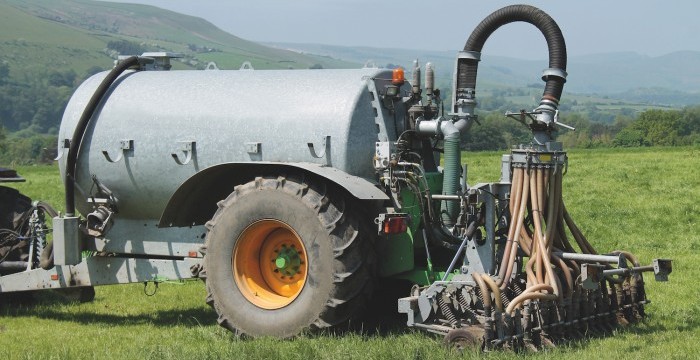Defra and the Environment Agency (EA) have agreed to publish clear new guidance on the interpretation of the Farming Rules for Water (FRfW) for farmers by early spring.
The commitment was made during an Environment, Food and Rural Affairs Committee (EFRA) hearing last week, attended by the Tennant Farmers Association, experts in soil and water issues, and senior officials from the EA to discuss the controversial rules.
“Farmers have been rightly concerned at mixed messages they have received from the Environment Agency about soil husbandry – and when and how they can spread organic fertiliser,” EFRA chair Neil Parish said after the hearing.
“But today’s informative and constructive session made it clear that all parties are committed to finding a solution which makes the most of good organic matter while reducing pollution.
“I was pleased that the Environment Agency and Defra committed during the session to publishing new and very clear guidance on this issue for our farmers by early Spring”.
Mr Parish has written to Farming Minister Victoria Prentis calling for clear guidance and better communication around FRfW. He told Mrs Prentis the session was held following ‘serious concerns raised by farmers and others that the EA’s interpretation was preventing farmers from spreading organic fertiliser in autumn for a spring crop, which would have severe adverse impacts’.
“There has been, and still is, significant confusion amongst farmers and others about what the rules mean in practice,” Mr Parish said. “We recognise that the EA is working on a risk-based basis, where the onus is on farmers to decide what organic fertiliser is appropriate to spread and when.
“However, there is clearly demand for further guidance that supports farmers, which is more nuanced and recognises the need to take a different approach for different organic fertilisers and soil types.”
“This guidance must also be holistic – considering other water pollutants such as ammonia and phosphorus as well as nitrate pollution, and addressing the impact on air quality, net-zero and soil health.”

Mr Parish welcomed the fact that the EA is working with stakeholders to produce guidance in the spring, which he said should provide much needed clarity in time for spring planting.
Miscommunication
“During the session it became clear that miscommunication was a significant cause of the recent disagreement between the sector and the regulator,” Mr Parish said. “We are grateful to the Environment Agency for candidly acknowledging that its communication effort could have been better and for committing to improving this in the future.”
He highlighted concerns about the impact the regulation is having on soil health. “During the session we heard strong evidence linking a higher level of organic matter in soil to water storage, flood mitigation, climate regulation, carbon sequestration, biodiversity, and crop fertility,” Mr Parish said.
“We therefore ask that the Government and the EA review the interaction between the farming rules for water and the Sustainable Farming Incentive, to ensure that farmers are properly incentivised to protect soil health while preventing water pollution. In the long term, we ask Defra to consider refreshing its Soil Strategy, which is currently over a decade old.”
He stressed that, overall, the committee was encouraged by the tone of the session and the fact that all sides agreed that the situation has moved on and improved since EFRA wrote to the agency in October.




